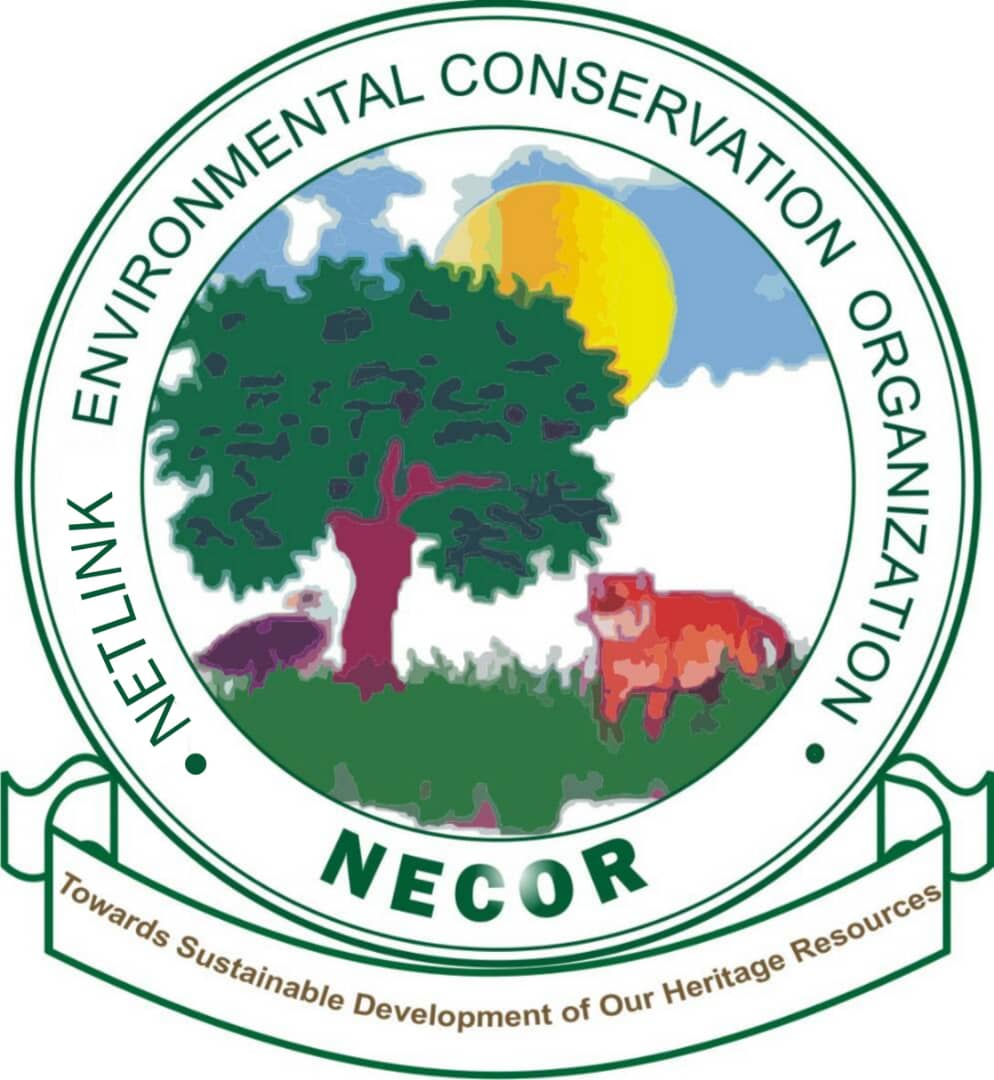INTRODUCTION
Netlink Environmental Conservation Organization promote, support and strengthening collaboration and partnership with relevant stakeholders at the Federal, State and Local Government institutions; Community Based Organisations; Corporate bodies; private establishments; and International, National and local Non-Governmental Organizations on Environmental Conservation,
Our concern
- Globally, there has been increasing decline in biodiversity as a result of indiscriminate and unsustainable harvesting, hunting and poaching without judicious attempt to replenish, replant or reproduce . UNEP, 2010, reported that the Earth’s biological resources are vital to humanity’s economic and social development.
- Continuous emissions of Carbon dioxide/Carbon monoxide has resulted to global warming and overall change in the climate. According to Intergovernmental Panel on Climate Change (IPCC), carbon dioxide and methane levels have increased by 35 % and 148 % since the industrial revolution of 1750.
- Nigeria has the highest extreme poverty population of 86.9 million representing nearly 50% of its 180 million population (Lucrody to World poverty clock report, 2018).
- Greater percentage of Nigerian youth is out of work. According to National Bureau of Statistics (NBS), Nigeria has a youth labour force of 38.2 million people between the ages of 15 and 24 years out of this number, 48.7% or 15.2 million is out of work and actively seeking employment.
- The size of plastic waste being generated in across the World is alarming and at the exponential rate. Generally, the average rate of waste generation is estimated as 0.5kg/capital/day. Biodegradable waste account for over 50% of waste generated with other component estimated at different composition in different State.
Our Areas of necessity
- There is need for our organization to support and promote tree planting as a measure to compensate for the losses in the recent time. Netlink Enviornmental Conservation Organisation also offer training to the populace on domestication of minlivestock , lesser known wild animasl, bee keeping e.tc as protein supplement for the teeming World population.
- We offer both Mitigation and adaptation measures required to address the issue of Climate Change. This involves cutting down the emission of Carbon monoxide/Carbondioxide through promoting the use of bicycle among the students in higher institution and pupils in Secondary schools. Planting of trees across our campuses and neighbouring communities to ameliorate micro climate, reduce urban heat waves and sequestrate carbon.
- Man power training on the techniques of domestication of lesser known wild animals and minilivestock is targeted at addressing the issue of protein deficiency in food, poverty, malnutrition and low income earning
- The need to harness immense opportunities in agribusiness and tourism has propelled our organization to offer Agropreneurship and Sociopreneurship training for youth between the age of 15 and 24 years . This is achieved through establishment of Environmental Conservation Club in various institutions and organized capacity training workshop.
- Construction of bamboo waste bin is considered as strategy to reduce consumption of plastic , promote recycling and reuse of plastic waste.
- Periodically we organized capacity training on flood risk disaster and management in flood prone communities like Bayelsa and Ondo State, Obafemi Awolowo University , Ile-Ife . This is aimed at building the resilience of those that are vulnerable especially in coastal areas and flood prone sites to mitigate flooding
Financial Commitment
Over the years the Organisation has executed diverse environmental conservation and sustainable programmes using various strategies that are innovative. Netlink has committed over N3million in executing the aforementioned environmental conservation projects across communities in Nigeria and Liberia. The Organization is institutional based and is headed by the Executive Director and four other Directors that constitute the board of Director. The Directors are people of impeccable characters with high moral standard. The Directors are highly competent, professional, seasoned environmentalists, specialist and expert in diverse field of environmental management. Education research officers are assigned to work with each of the Director to facilitate day to day activities of the Organist.
